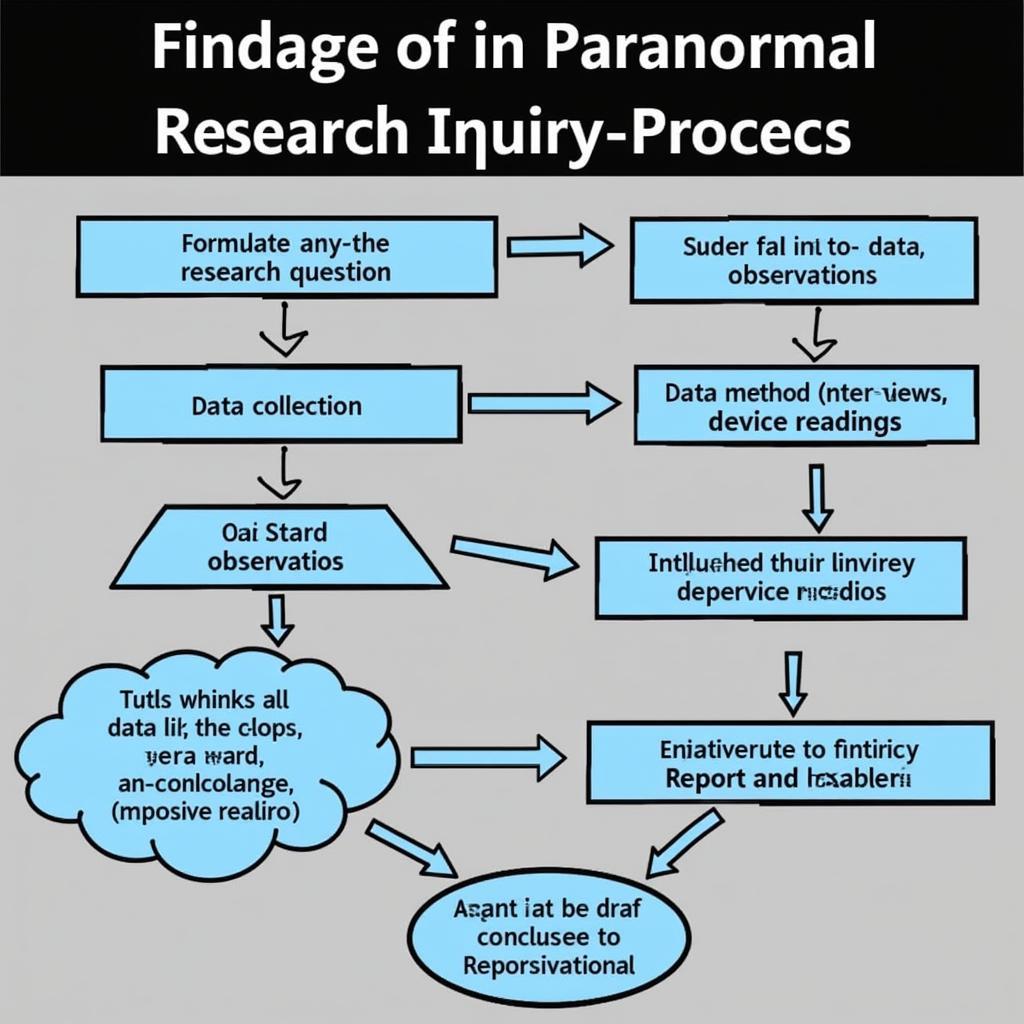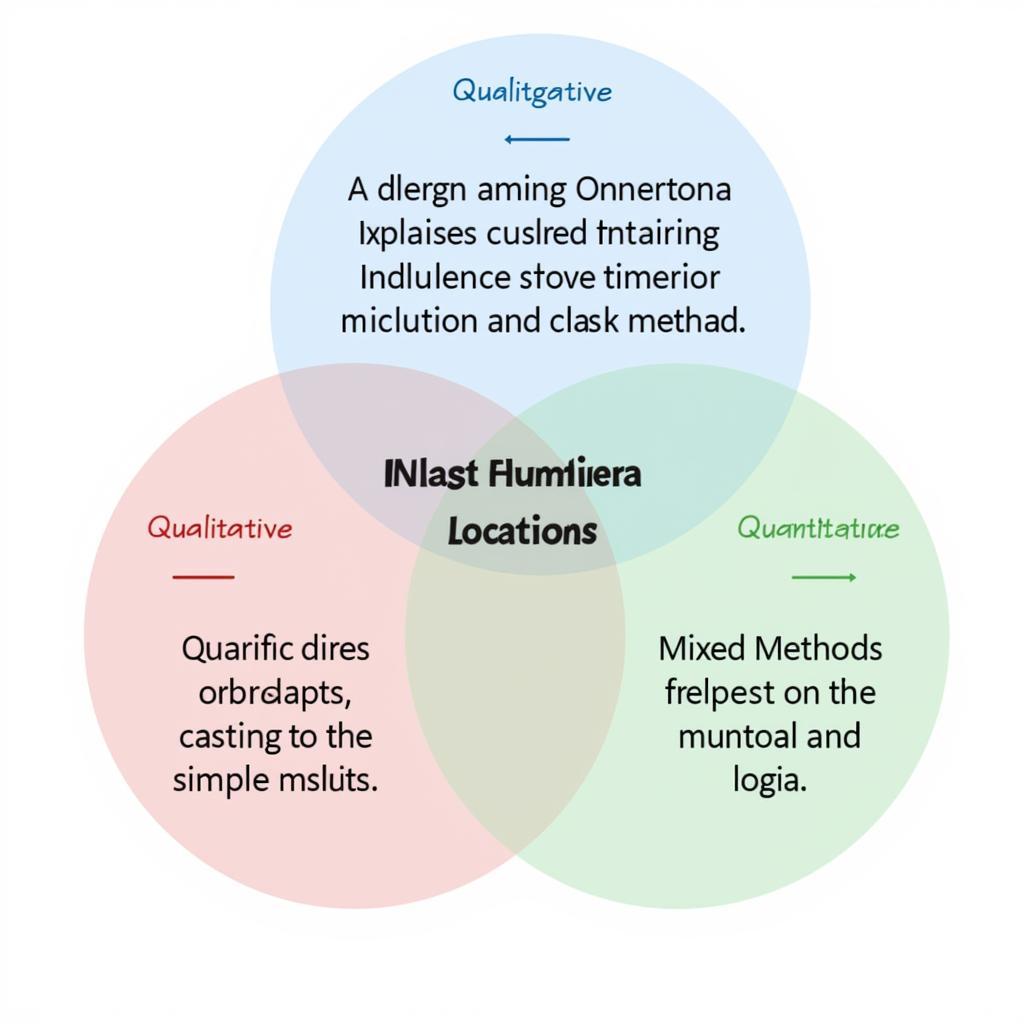Research Inquiry forms the bedrock of our understanding of the paranormal. It’s the engine that drives us to explore the unexplained, to seek answers where conventional wisdom falls short. Whether you’re investigating a haunted house or analyzing ancient texts for clues to forgotten rituals, a structured research inquiry is essential. research as inquiry provides a valuable framework for this very process.
What is Research Inquiry in Paranormal Investigations?
Research inquiry, in the context of paranormal research, goes beyond simply asking questions. It’s a systematic process of formulating a research question, gathering data, analyzing that data, and drawing conclusions. This methodical approach is crucial for separating genuine paranormal phenomena from misinterpretations, hoaxes, or natural occurrences.
The Importance of a Structured Approach
A well-defined research inquiry allows for objectivity, which is paramount in a field often clouded by subjective experiences and beliefs. It allows researchers to document their findings accurately, share their methodology with others, and invite scrutiny. This transparency builds credibility and fosters a collaborative environment within the paranormal research community.
 Paranormal Research Inquiry Process
Paranormal Research Inquiry Process
Different Types of Research Inquiry in Paranormal Investigations
Paranormal research utilizes various research inquiries, each tailored to specific investigative needs. These include:
- Qualitative Inquiry: This approach focuses on in-depth understanding of experiences and perspectives. For example, interviewing witnesses of a haunting to understand the emotional impact and recurring themes in their accounts. qualitative inquiry and research design choosing among five traditions explores the different approaches within qualitative research.
- Quantitative Inquiry: This approach emphasizes measurable data. This might involve collecting EMF readings in a reportedly haunted location or analyzing statistical patterns in EVP recordings.
- Mixed Methods Inquiry: This combines both qualitative and quantitative approaches for a more comprehensive understanding. For example, combining EMF readings with witness interviews to correlate environmental factors with reported experiences.
Choosing the Right Approach
The most appropriate type of research inquiry depends on the specific research question being addressed. A complex haunting might benefit from a mixed methods approach, while a simpler investigation might suffice with a primarily qualitative focus. research sociology topics can provide insights into selecting the most suitable approach for your research.
 Types of Paranormal Research Inquiry
Types of Paranormal Research Inquiry
How to Conduct Effective Research Inquiry
Effective research inquiry in paranormal investigations requires careful planning and execution. Here are some key steps:
- Formulate a clear research question: What are you trying to find out?
- Develop a research plan: How will you gather data? What methods will you use?
- Collect data systematically: Document everything thoroughly.
- Analyze the data objectively: Look for patterns and anomalies.
- Draw conclusions based on the evidence: Avoid jumping to conclusions.
“A meticulous research inquiry separates the credible from the improbable,” states Dr. Evelyn Reed, a prominent parapsychologist. “It’s the cornerstone of responsible paranormal investigation.”
Conclusion: The Power of Research Inquiry in Paranormal Investigations
Research inquiry is the key to unlocking the secrets of the paranormal. By embracing a systematic and objective approach, we can move beyond speculation and toward a deeper understanding of the unexplained. This not only strengthens the credibility of paranormal research but also allows us to explore the mysteries of our world with greater clarity and insight. qualitative inquiry and research design 4th edition offers more in-depth information for those interested in further developing their research skills. advocacy research demonstrates the importance of ethical considerations in any research endeavor.
FAQs
- What is the difference between research inquiry and investigation?
- How can I ensure the objectivity of my research inquiry?
- What are some common pitfalls to avoid in paranormal research inquiry?
- Where can I find resources to improve my research skills?
- How can I contribute my research findings to the paranormal community?
- What are some ethical considerations in paranormal research inquiry?
- How can I apply research inquiry to personal paranormal experiences?
Common Scenarios and Questions:
- Scenario: You hear unexplained noises in your home. Question: Is it a haunting or something else?
- Scenario: You experience a vivid dream that seems precognitive. Question: How can I investigate the possibility of precognition?
- Scenario: You witness an unexplained light in the sky. Question: How can I determine if it’s a UFO or a natural phenomenon?
Further Exploration
Explore other articles on our website for more information about specific paranormal phenomena and investigative techniques.
Contact Us
For assistance with your Paranormal Research inquiries, please contact us:
Phone: 0904826292
Email: research@gmail.com
Address: No. 31, Alley 142/7, P. Phú Viên, Bồ Đề, Long Biên, Hà Nội, Việt Nam.
We have a 24/7 customer support team.